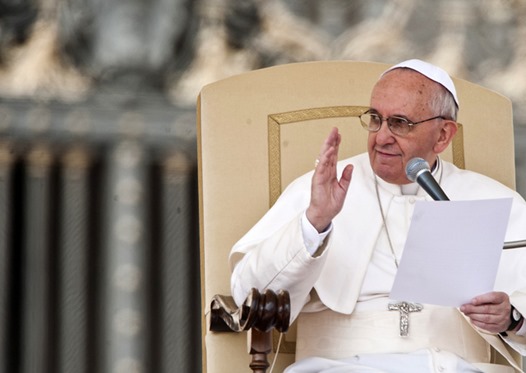I have waited to post this. Several months ago, I read the following on the website of a pastor friend. This pastor has an earned Ph.D. in theology, is incredibly bright, and has a remarkable degree of pastoral sensitivity. The post was written for his congregation, intended to provide perspective on how to think about the new pope. Below are his words, followed by a few of my observations on how evangelical leaders tend to speak about the pope (I am not featuring the title of the piece in the hope of protecting the author’s identity):
Francis. The new pope has arrived. White smoke. Thousands running through the streets of Rome to greet the new pope as he is first presented. With all the hoopla here are five truths about the new pope.
- He is a man. Despite all the attendant fanfare, this new pope shares the same bodily and mental capacities as every other member of the human race, and is neither more nor less fully made in the image of God.
- He is fallen. Despite his white clothes and calm disposition, this new pope shares the same fallen nature as every other member of the human race, and is just as much a part of the fall as you and I.
- He needs Christ. Despite his Pontifex title and role, this new pope needs the atoning blood of Christ, the Supreme Ruler of the Church, just as much as anyone else.
- He asks for our prayers. Whatever our theology of the pope, whether we consider him friend of truth or enemy of the truth, or somewhere in between, having asked for our prayers we would be mindful to pray for him.
- One day he will face the judgment of God. Like all of us he will be judged according to the gospel of Christ. We should pray that he will defend, preach, and teach that gospel.
Here are a few thoughts. I am afraid that statements one, two, three, and five misrepresent Catholic teaching. Taking each in turn, (1) Catholics are quite clear that the pope is simply a man who is fully made in the image of God (2) that he is fallen (3) and therefore needs the atoning blood of Christ (5) and like all of humanity will by judged according to the gospel (although, the Catholic understanding of gospel differs from an evangelical Protestant understanding). What is especially interesting is the fact that Pope Francis is the poster pope for humility, a quality that he has manifested from the beginning of his pontificate. And as for his need for Christ, who will forget the opening words of his exclusive interview with America Magazine. You will perhaps recall the interviewer’s first question, “Who is Jorge Mario Bergoglio?” to which the pope responded, “I am a sinner. This is the most accurate definition. It is not a figure of speech, a literary genre. I am a sinner.”
Please don’t misunderstand me. By making these observations, I do not intend to promote allegiance to the pope. Simply read here and here for a sampling of what I have posted elsewhere on the subject. Rather, I want to call attention to the opportunity that evangelical leaders have in equipping our people when we address this topic, an opportunity that we often miss. In other words, instead of allowing half-baked caricatures to be propagated (i.e. that Catholics teach the pope is more than a man, not fallen, and somehow in less need of the atonement), we must present Catholic teaching accurately and then express why we disagree with it. Integrity demands such an approach, and it goes further toward helping our people give an intelligent answer for their redemptive hope among Catholic family and friends.
Finally, I must say that I like the way my pastor friend handled point number four. It exemplifies the sort of honesty and kindness that promotes fruitful gospel ministry.





